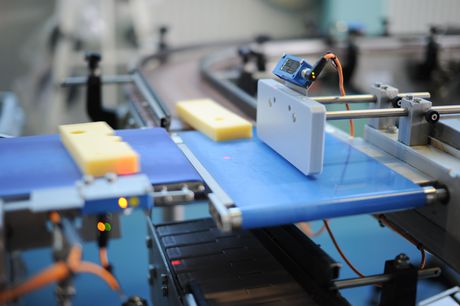Information, mobility and visibility: the value proposition for the IoT in manufacturing
By Stephen Broadbent, Country Manager New Zealand, Rockwell Automation
Friday, 04 September, 2015

The IoT enables companies to establish an information-enabled business, linking consumer information, distribution, manufacturing and supply chain — allowing manufacturers to become flexible and competitive on a global scale.
Manufacturing generates more data than any other sector, making analytics even more relevant. By combining the data source elements of the consumer, supply chain and manufacturing into the plant automation platform, improvements in control can be made in real time.
For example, traceability is particularly important to the food and beverage industry. Data-oriented decisions or changes in manufacturing can be made rapidly — providing secure, lower cost to market while allowing businesses to add value to their products to meet consumer demands.
It is estimated that by 2020, one billion new middle-class consumers will add $8 trillion to consumer spending. These global population trends will result in increased demand for manufacturing, resources and infrastructure. The value proposition that the IoT can bring will deliver improved asset utilisation and enterprise risk management for manufacturers.
The growing population will place ever-increasing demands on the production of food, on the automotive industry and on infrastructure. Production volumes will need to increase and workers will become more engaged with production data, based on consumer demands. The use of visualisation dashboards on production lines will be more widespread. Employees can monitor the productivity data — such as units per hour, energy use and shift volume requirements. Workers will be more informed and focused to help reduce scrap and downtime. It is not about having fewer workers but more about driving a more productive and engaged workforce.
Mobility tools powered by the IoT will provide dashboard-style access to real-time consumer and manufacturing information. Various management layers will have improved visibility to drill down to a particular line or process and look at parameters such as machine availability, scrap rates, predictive maintenance and energy usage. When linked to business drivers such as sales forecasts, production volumes, stock turns and profitability, more productive and efficient manufacturing can be driven through the entire business.
Manufacturing facilities now have a global reach with consumer markets in different parts of the world, so brand protection and compliance are vital for exporters. IoT technologies can help manufacturers remain successful on a global scale by delivering integrated consumer supply information.
Market demographic consumer data can also be captured through their smart device. In turn, this can be linked back to the business enterprise system enabling a smart manufacturing layer. This information allows the optimisation of the entire supply chain from raw product to tracking of distribution and authenticity — facilitating global ‘track and trace’ and product recalls. Production machines and ingredients can be rapidly batch managed to meet demand. IoT technologies help to enable secure, safe and efficient food production and distribution to global markets.
For the exporter of manufacturing machinery, the IoT will provide a link to their equipment, enabling product updates and service information to be done remotely, saving on costly travel while enabling the end user to maximise machine uptime.
The US market opportunity Australian engineering firms need right now
Australia is in the midst of an engineering talent crisis, but recuiting graduates from the US...
2026 Thought Leaders: Jimmy Martin
Jimmy Martin of AMCS Group discusses the use of AI in the waste and recycling industry.
Australia must rethink the foundations of industrial automation
In order to compete globally, we need a willingness to rethink the foundations and build...











